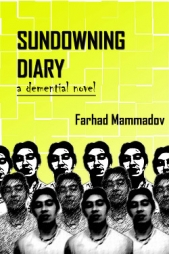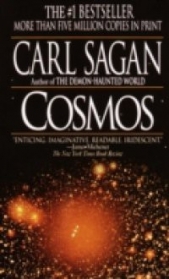[New Sun 04] The Citadel of the Autarch
![[New Sun 04] The Citadel of the Autarch](/uploads/posts/books/no-cover.jpg)
[New Sun 04] The Citadel of the Autarch читать книгу онлайн
Внимание! Книга может содержать контент только для совершеннолетних. Для несовершеннолетних чтение данного контента СТРОГО ЗАПРЕЩЕНО! Если в книге присутствует наличие пропаганды ЛГБТ и другого, запрещенного контента - просьба написать на почту [email protected] для удаления материала
The savages seemed to have vanished. A new force appeared in their place, on the flank that had now become our front. At first I thought they were cavalry on centaurs, creatures whose pictures I had encountered in the brown book. I could see the heads and shoulders of the riders above the human heads of their mounts, and both appeared to bear arms. When they drew nearer, I saw they were nothing so romantic: merely small men—dwarfs, in fact—upon the shoulders of very tall ones.
Our directions of advance were nearly parallel but slowly converged. The dwarfs watched us with what seemed a sullen attention. The tall men did not look at us at all. At last, when our column was no more than a couple of chains from theirs, we halted and turned to face them. With a horror I had not felt before, I realized that these strange riders and strange steeds were Ascians; our maneuver had been intended to prevent them from taking the peltasts in the flank, and had now succeeded in that they would now have to make their attack, if they could, through us. There seemed to be about five thousand of them, however, and there were certainly many more than we had fit to fight.
Yet no attack came. We had halted and formed a tight line, stirrup to stirrup. Despite their numbers, they surged nervously up and down before it as though attracted first by the thought of passing it on the right, then on the left, then on the right again. It was clear, however, that they could not pass at all unless a part of their force engaged our front to prevent our striking the rest from behind. As if hoping to postpone the fight, we did not fire..
Now we saw repetitions of the behavior of the lone spearman who had left his square to attack us.
One of the tall men dashed forward. In one hand he held a slender-staff, hardly more than a switch; in the other, a sword of the kind called a shotel, which has a very long, double-edged blade whose forward half is curved into a semicircle. As he drew nearer he slowed, and I saw that his eyes were unfocused; that he was in fact blind. The dwarf on his shoulders had an arrow nocked to the string of a short, recurved bow.
When these two were within half a chain of us, Erblon detailed two men to drive them off. Before they could close with the blind man, he broke into a run as swift as any destriers but eerily silent, and came flying toward us. Eight or ten troopers fired, but I saw then how difficult it is to hit a target moving at such speed. The arrow struck and burst in a blaze of orange light. A trooper tried to parry the blind man’s wand—the shotel flashed down, and its hooked blade laid open the trooper’s skull.
Then a group of three of the blind men with three riders detached itself from the mass of the enemy. Before they reached us, there were clusters of five or six coming. Far down the line, our hipparch raised his arm; Guasacht waved us forward and Erblon blew the charge, echoed to right and left—a bellowing note that seemed to have deep-mouthed bells in it.
Though I did not know it at the time, it is axiomatic that encounters purely between cavalry rapidly degenerate into mere skirmishes. So it was with ours. We rode at them, and though we lost twenty or thirty in doing so, we rode through them. At once we turned to engage them again, both to prevent their flanking the peltasts and to regain contact with our own army. They, of course, turned to face us; and in a short time neither we nor they had anything that could be called a front, or any tactics beyond those each fighter forged for himself.
My own were to veer away from any dwarf who looked ready to shoot and try to catch others from behind or from the side. They worked well enough when I could apply them, but I quickly found that though the dwarfs appeared almost helpless when the blind men they rode were killed under them, their tall steeds ran amok without their riders, attacking anything that stood in their path with frantic energy, so that they were more dangerous than ever.
Very soon the dwarfs’ arrows and our conti had kindled scores of fires in the grass. The choking smoke rendered the confusion worse than ever. I had lost sight of Daria and Guasacht—of everyone I knew—sometime before. Through the acrid grey haze I could just make out a figure on a plunging destrier fighting off four Ascians. I went to him, and though one dwarf turned his blind steed and sent an arrow whizzing by my ear, I rode over them and heard the blind man’s bones snap under the piebald’s hoofs. A hairy figure rose from the smouldering grass behind the other pw and cut them down as a peon hews a tree—three or four strokes of his axe to the same spot until the blind man fell.
The mounted soldier I had come to rescue was not one of our troopers, but one of the savages who had been on our right earlier. He had been wounded, and when I saw the blood I recalled that I had been wounded too. My leg was stiff, my strength nearly gone. I would have ridden back toward the south crest of the valley and our own lines if I had known which way to go. As it was, I gave the piebald his head and a good slap from the reins, having heard that these animals will often return to the place where they last had water and rest. He broke into a canter that soon became a gallop. Once he jumped, nearly throwing me from the saddle, and I looked down to glimpse a dead destrier with Erblon dead beside him, and the brass graisle and the black and green flag lying on the burning turf. I would have.
turned the piebald and gone back for them, but by the time I pulled him up, I no longer knew the spot.
To my right, a mounted line showed through the smoke, dark and almost formless, but serrated. Par behind it loomed a machine that flashed fire, a machine that was like a tower walking.
At one moment they were nearly invisible; at the next they were upon me like a torrent. I cannot say who the riders were or on what beasts they rode; not because I have forgotten (for I forget nothing) but because I saw nothing clearly. There was no question of fighting, only of seeking in some way to live. I parried a blow from a twisted weapon that was neither sword nor axe; the piebald reared, and I saw an arrow protruding from his chest like a horn of fire. A rider crashed against us, and we fell into the dark.
XXIII. The Pelagic Argosy Sights Land
WHEN I REGAINED consciousness, it was the pain in my leg that I felt first. It was pinned beneath the body of the piebald, and I struggled to free it almost before I knew who I was or how I found myself where I did. My hands and face, the very ground on which I lay, were crusted with blood.
And it was quiet—so quiet. I listened for the thudding of hoofs, the drum roll that makes Urth herself its drum. It was not there. The shouts of the cherkajis were no more, nor the shrill, mad cries that had come from the checkerboard of Ascian infantry. I tried to turn to push against the saddle, but I could not do so.
Somewhere far off, no doubt on one of the ridges that rimmed the valley, a dire wolf raised its maw to Lune. That inhuman howling, which Thecla had heard once or twice before when the court went to hunt near Silva, made me realize that the dimness of my sight was not due to the smoke of the grass fires that had burned earlier that day, or, as I had half feared, to some head injury. The land was twilit, though whether by dusk or dawn I could not say.
I rested and perhaps I slept, then roused again at the sound of footsteps. It was darker than I remembered. The footsteps were slow, soft, and heavy. Not the sound of cavalry on the move, nor yet the measured tread of inarching infantrya walk heavier than Baldanders’s and more slow. I opened my mouth to cry for help, then closed it again, thinking I might call upon myself something more terrible than that I had-once waked in the mine of the man-apes. I lunged away from the dead piebald until it seemed I would wrench my leg from its socket. Another dire wolf, as frightful as the first and much closer, howled to the green isle overhead.























